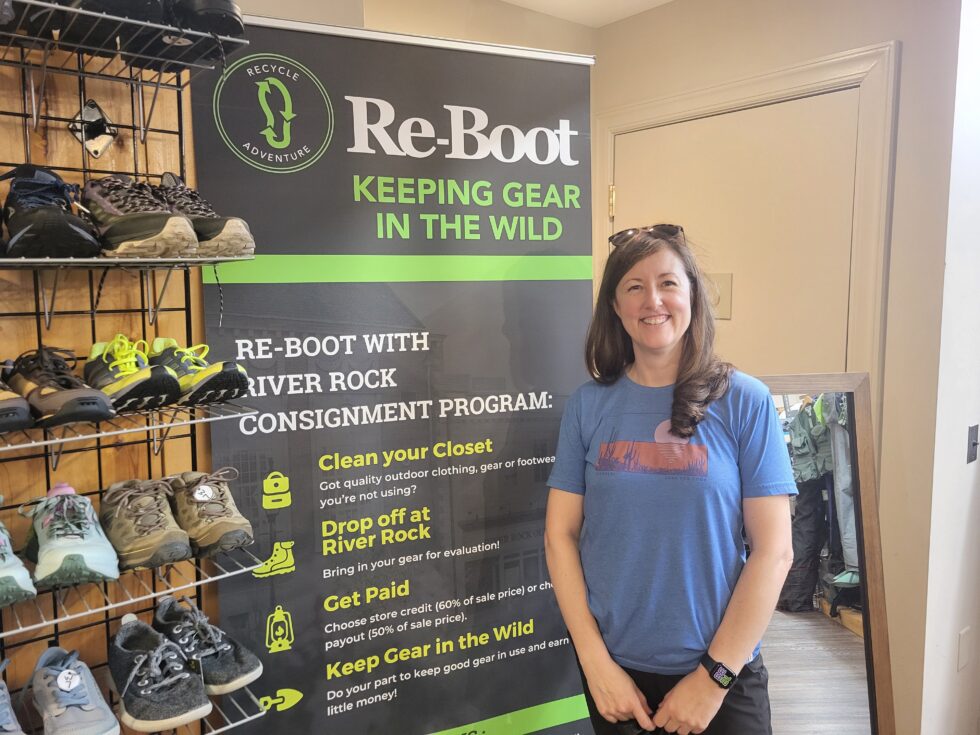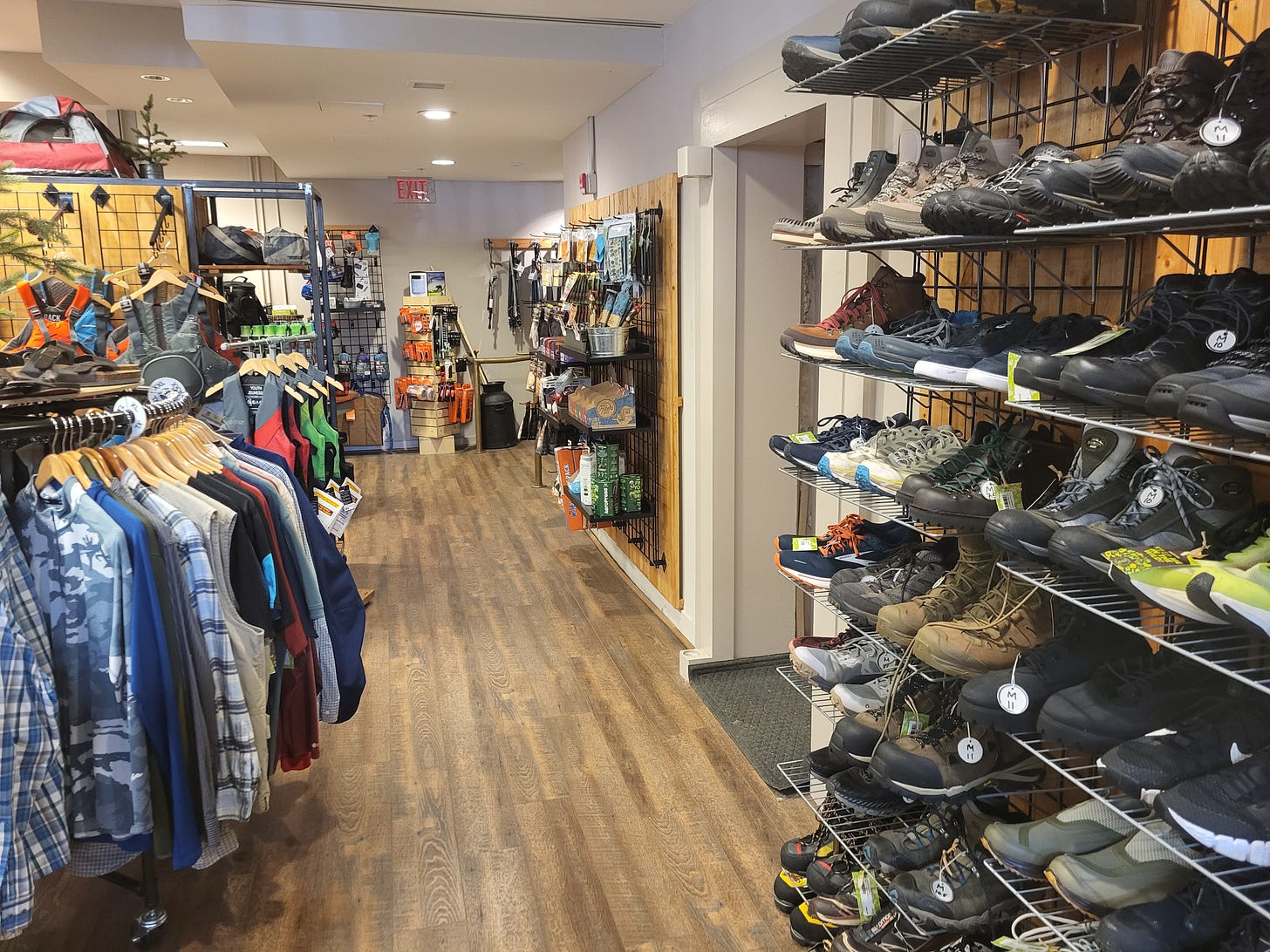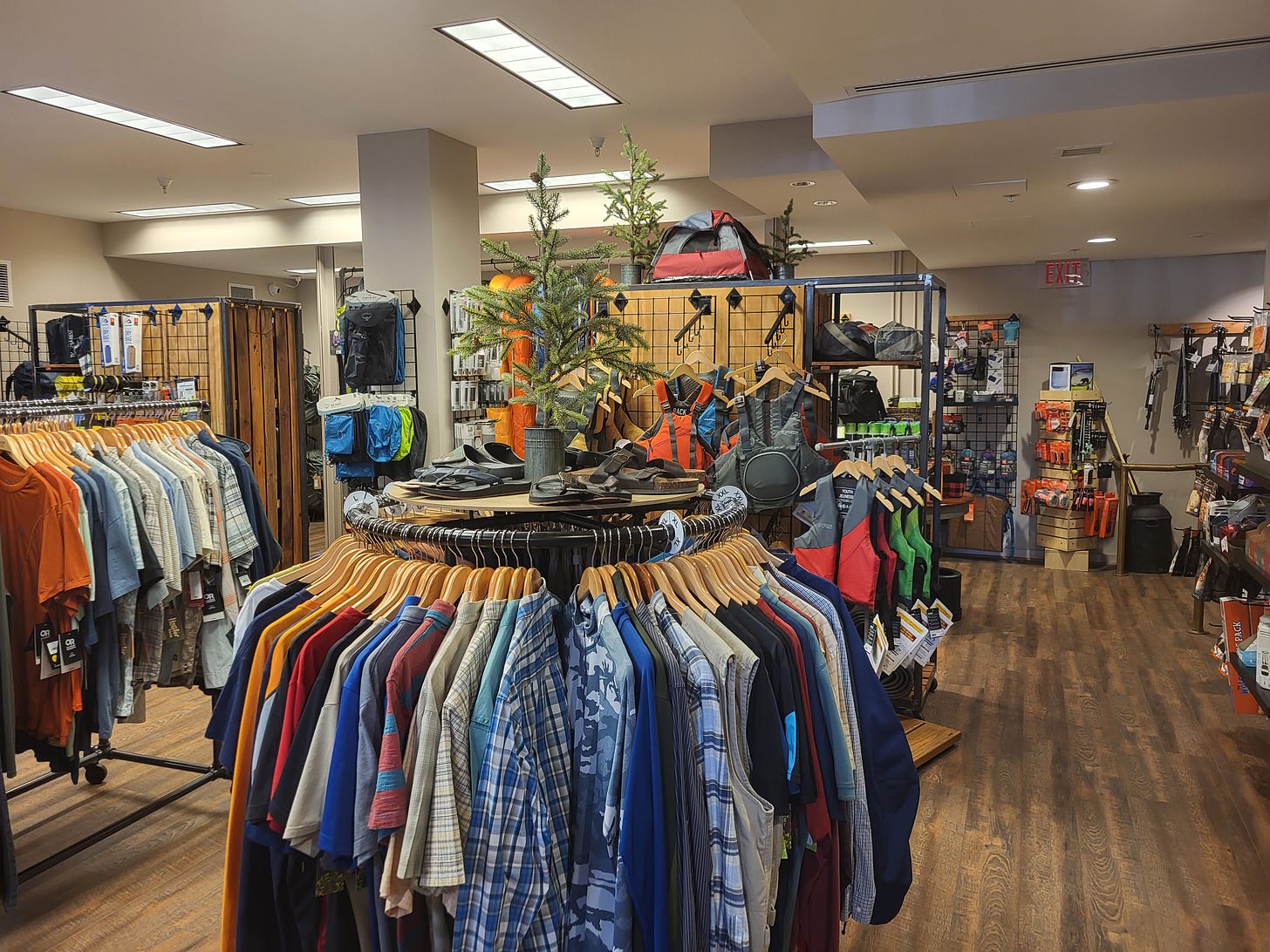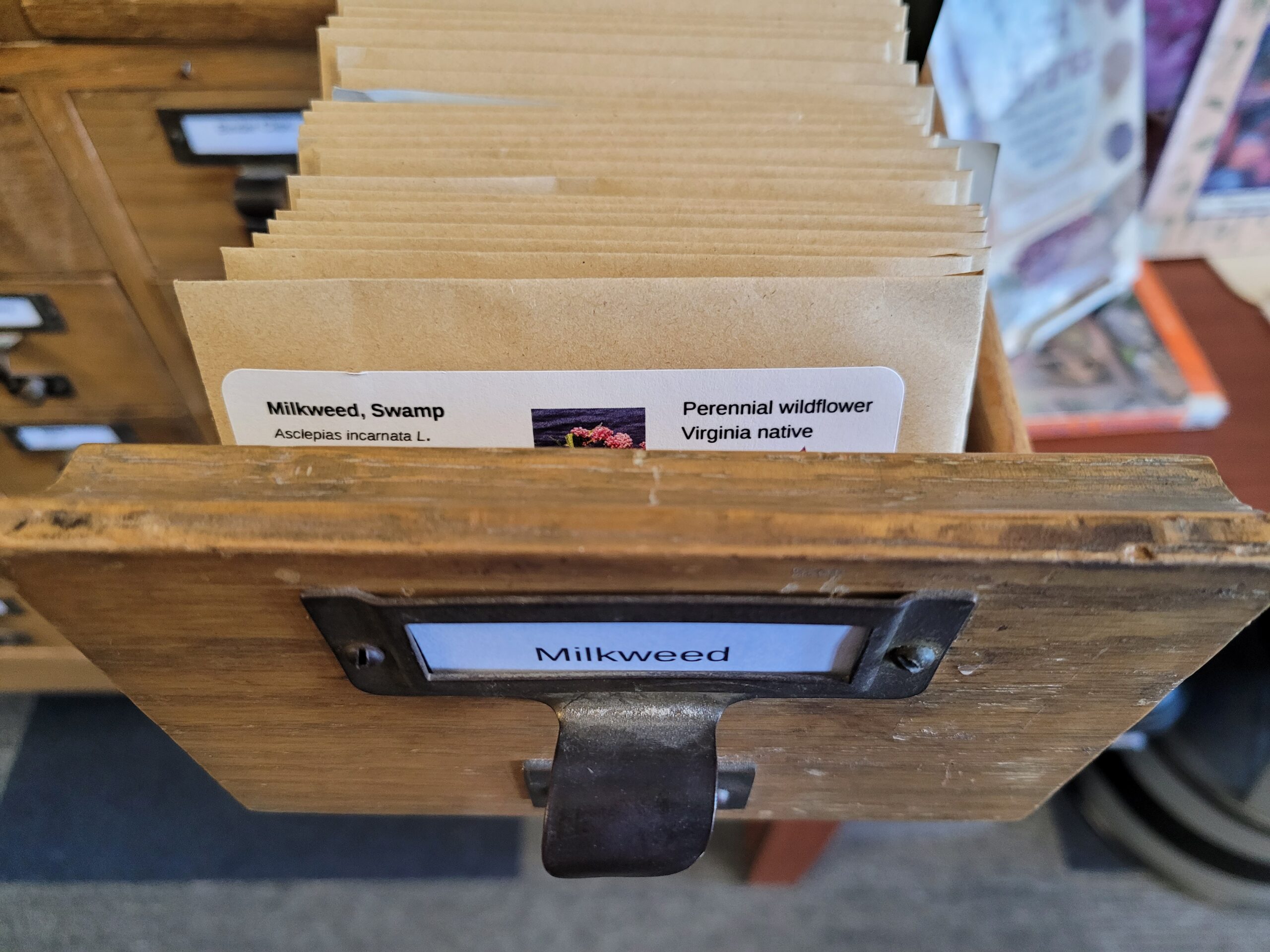
Sometimes, the best getaways are just around the corner.
The Rappahannock River is truly a cut above in both its beauty and accessibility. We live so close to this resource that has sustained life in our region long before John Smith met Amoroleck in 1608, and yet too few of us avail ourselves of its charms.
For a 93-year-old Spotsylvania resident, the call to the water was always there, he just never was able to take advantage of it.
Friends from his church — knowing the man’s desire — contacted April Peterson.
“On [this gentleman’s] bucket list,” they said, “is getting on the water. Can you help”?
Helping people get into the outdoors is what Peterson does best.
After getting a doctor’s note clearing the man to do so, Peterson told the Advance that she “put him in a kayak, and we started paddling upstream.”
“I was going to teach him some things,” she said, “but once we were on the river, I realized he didn’t want to learn from me. He just wanted the experience. He was so quiet, taking everything in.”
When they got to the train bridge, Peterson asked the man if he wanted to travel a little further. “You’re doing great,” she remembers telling him. And he said, “Nope, I’m done.”
They turned around and returned to the city dock. A short time later, she received a note, and a check that he wanted her to donate to a school in Nepal that Peterson helps support.
Outdoor Re-Boot
The gentleman from Spotsylvania isn’t the first person Peterson has helped to reach a dream. He just stands out a bit more clearly in her memory.
Whether young or old, rich or poor, Peterson knows that getting people into the outdoors is a gamechanger for them. She’s been doing it, and seeing first-hand the benefits of doing so, almost daily for a decade.
While more people are coming to the outdoors, too many continue to ignore our natural gems, however. Why don’t more people take advantage of the natural abundance in our area?
Peterson points to a number of barriers. Some people “don’t feel they have enough knowledge,” she said. Or, “they don’t feel confident enough, or there’s an economic issue.”
On all three fronts, River Rock Outfitter, which Peterson and her husband — a former Marine — own, exists to remove those barriers.
In many ways, the knowledge and confidence barriers are relatively easy to address. The economic issue, however, is quite another problem.
“I have to sell high-quality items as a specialty outdoors store,” Peterson said. Even on sale, an RAB or Patagonia jacket is more than many budgets can absorb.
The COVID epidemic, however, helped Peterson find the key to providing less-expensive, but still-high-quality gear to people.
As she explained to the Advance, the advantage of the high-quality, high-dollar gear she sells is that it is designed to last a lifetime and beyond.

“If you buy a Patagonia jacket,” she said, “you shouldn’t buy another one because it will outlive you.”
However, utility isn’t the only reason people purchase Patagonia and related products. Some appreciate the quality and the brand, even if the most dangerous outdoor walk they take each day is from the parking garage to the office. Others will buy something online intending to use it, but never do.
Those who do buy the equipment for utility oftentimes like to stay abreast of the latest and greatest gear. They’ll purchase a jacket and wear it for a season before looking to replace it with something newer.
That means there’s a significant amount of like-new (and sometimes still new) product that fits well in a consignment store.
When the pandemic hit and supply chains made it difficult to secure goods, Peterson made the connection, and the idea to launch a consignment store at River Rock was born.
She branded her consignment line “Re-Boot.” But the catchy tagline isn’t why Re-Boot has been so successful and now represents the second-largest product line in her store by volume.
Rather, it worked because Re-Boot proved to be a win-win-win. Peterson outlined the three winners:
- River Rock – “I needed items to carry in the store when the supply chain broke and I couldn’t get items in,” she said. “Consignment gave me something to sell, and it’s low risk to me because I don’t pay for it upfront. I only pay when it sells.”
- Consigners – People who bought gear and for a number of reasons decide to unload it can sell to River Rock and make money off of it. Alternately, they can trade it for store credit. “About 70% of our consigners take the store-credit route,” Peterson said. We split the sale 60-40 in the consigner’s favor. That credit stays with the consigner and doesn’t go away. “We have people with over a $1,000 in store credit,” Peterson said. The other option is a check payout, which is a 50-50 split. “This gives the consigner options,” she said.
- Customers – Re-Boot has created a whole new stream of customers. “Think about that Boy Scout family with three scouts,” Peterson said. “They can’t afford to buy them all new backpacks. Now, they have a place where they can go to get quality products at a much-reduced price.
People over Profit
While the economic model explains why people who previously couldn’t afford to shop at River Rock now do, it alone doesn’t explain why Re-Boot is growing so rapidly.
Part of the answer is in the way Re-Boot is arranged in the store. Unless one is paying very close attention, the transition from new clothing and equipment to used is virtually undetectable.
“One of the challenges for a consignment store is how you make it look neat, and someplace people want to shop,” Peterson said. “I want people to shop it like they would any other part of the store.”

The only real give-away? The price tags that are all labeled “Keep me in the wild.”
Another explanation is the employees themselves.
Peterson understands that very young, physically ripped employees who can “geek-out” about the latest outdoor wear are who some of her shoppers want to deal with, but most are people who can be intimidated by these individuals.
“We set it as a mission early on,” Peterson said, that “the last feeling we want to give anyone is that staff is so consumed by the sport they’re doing that they get snobby about the gear.”
So she consciously “employs people across the decades. We have employees in their 20s, 30s, 40s, 50s, and 60s,” Peterson said.
So whatever one’s age, there’s someone in the store who can relate to you and your needs.
She’s also made the space inviting. “We have couches, chairs,” she said. “We encourage people to come sit. Take a breath. Breathe. We’ll make you feel comfortable.”
And they’ll listen to what you would like to do and help you get there in equipment that you require without judgment.
“I will not put you in something you do not need,” Peterson told the Advance. “If I have to send you somewhere else, I will.”
Re-Boot has helped to reduce the number of times she has to do that, however. “If I don’t have something new in your budget, I can take you to Re-Boot. Now, I’m more likely to find an alternative.”
Another barrier often is gender.
“Our entire staff has since day one been 80% female,” Peterson said. “Women have a million barriers to getting outdoors. Knowing that there are women here makes it easier for them.”
Safety First
Above all else, Peterson wants people to be safe and to have the right equipment when they take to the outdoors.
Because she is a specialty store, she doesn’t aim to stock it with everything available. Rather, she “curates” the items in her store to fit the conditions of people who live and play here.
And she knows the equipment she sells.
“I’m the only buyer for the store,” she said. “I’ve used this gear, talked to the owners, and I’ve bought it specifically for this area.” And she knows that the wrong gear can make what should be a great outing a miserable one.
“Life vests, backpacks, hiking boots. These things are super important to having a safe, fun trip,” Peterson said. “We should not trust these items to online sales. You may think you need a Large or and Extra Large backpack because you’re tall, but finding a pack that fits is all about torso. So a tall person might be in a Medium, and a shorter person may be in a Large.”
And then there’s the touchy issue of life vests. People absolutely need these when they’re on the water, Peterson said, but they turn away from them for a range of reasons — comfort being the most frequent reason to ditch the device.
Peterson, however, “carries life vests specifically for our type of river, and our type of paddling.” And she can put you in a vest that doesn’t restrict your range of motion. “You won’t even know it’s on” in some cases, she said.
A Whole New Clientele
Re-Boot is succeeding well beyond Peterson’s dreams. Consignment items currently take up about 25% of the floor space in River Rock, and the department has its own manager.
It’s even conceivable that Re-Boot one day could grow into its own business.
All that makes Peterson’s accountant quite happy. What makes Peterson happy, however, is seeing waves of people who traditionally had not ventured outdoors due to any number of barriers finding that world opened up to them.
Like the 93-year-old man she took kayaking.
As children leave the nest, people begin to realize they have a whole new life chapter opening to them, Peterson said. “The outdoors is where the older community can discover that next chapter of their life.”
Whether that means creating a new life around outdoor adventures, or simply taking a bucket-list ride on a kayak down a river one has known their whole life, but never experienced.
Submit a Recipe for Publication
Follow us on Facebook | Instagram | Youtube

Local Obituaries
To view local obituaries or to send a note to family and loved ones, please visit our website at the link that follows.

Support Award-winning, Locally Focused Journalism

The FXBG Advance cuts through the talking points to deliver both incisive and informative news about the issues, people, and organizations that daily affect your life. And we do it in a multi-partisan format that has no equal in this region. Over the past month, our reporting was:
$8 a month supports great journalism
- First to report on a Spotsylvania School teacher arrested for bringing drugs onto campus.
- First to report on new facility fees leveled by MWHC on patient bills.
- First to detail controversial traffic numbers submitted by Stafford staff on the Buc-ee’s project
- Provided extensive coverage of the cellphone bans that are sweeping local school districts.
- And so much more, like Clay Jones, Drew Gallagher, Hank Silverberg, and more.
For just $8 a month, you can help support top-flight journalism that puts people over policies.
Your contributions 100% support our journalists.
Help us as we continue to grow!





